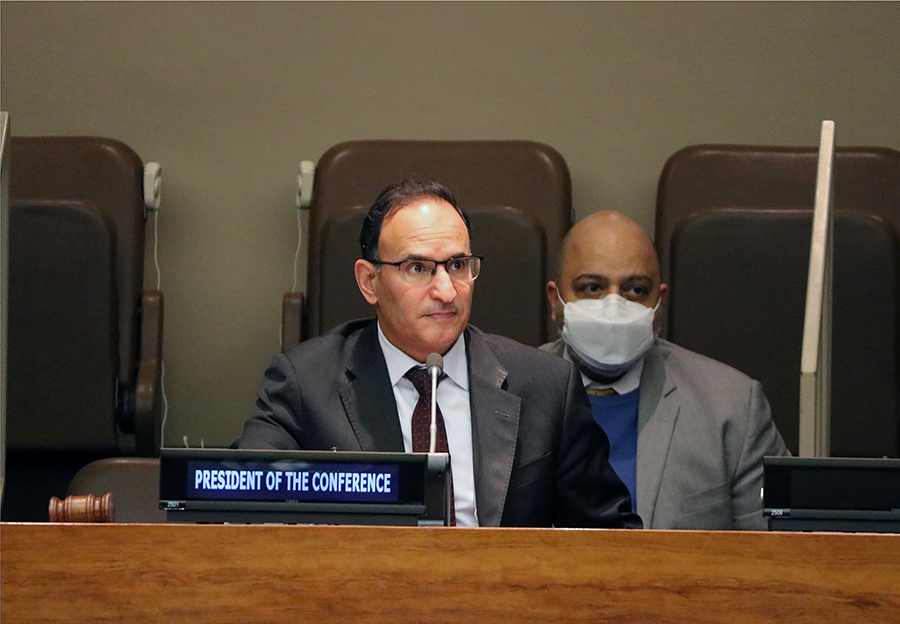Work Continues on Middle Eastern WMD-Free Zone
January/February 2022
By Mary Ann Hurtado and Julia Masterson
A UN conference has established an informal working committee to further deliberations on creating a zone free of weapons of mass destruction (WMD) in the Middle East.
 Participating states made the decision by consensus at the second annual session of the Conference on the Establishment of a Middle East Zone Free of Nuclear Weapons and Other Weapons of Mass Destruction, held Nov. 29–Dec. 3 in New York.
Participating states made the decision by consensus at the second annual session of the Conference on the Establishment of a Middle East Zone Free of Nuclear Weapons and Other Weapons of Mass Destruction, held Nov. 29–Dec. 3 in New York.
Although the action was a modest step, participants expressed hope that the committee would make progress on key issues in the time before the next annual conference and thus advance the long-sought goal of a treaty that would rid the Middle East of nuclear, chemical, and biological weapons. The committee is to meet at least twice during the next year.
Establishment of the committee, which is open to all states in the region, also could help to stave off debate on the zone at the 10th review conference of the nuclear Nonproliferation Treaty (NPT), which was delayed from this month because of the COVID-19 pandemic.
Since 1995, debate over a potential WMD-free zone in the Middle East has dominated and at times derailed discussions at NPT review conferences and in other disarmament forums.
The 2000 and 2010 NPT review conferences reaffirmed support for the zone. But in 2015, Canada, the United Kingdom, and the United States opposed an Egyptian proposal to convene a future meeting to negotiate a Middle Eastern WMD-free-zone treaty, thereby preventing unanimous adoption of a final NPT conference document. (See ACT, June 2015.)
U.S. officials said then that the U.S. decision to block consensus stemmed from “unworkable conditions” and “arbitrary deadline[s]” in the Egyptian proposal.
U.S. views closely parallel those of Israel, which is not an NPT state-party but is the only Middle Eastern country with a nuclear arsenal. Israel has rejected previous proposals to partake in a mandated, time-bound process to create a Middle Eastern zone without due attention to the security challenges facing the region. (See ACT, March 2020.)
In 2018, Egypt introduced a resolution in the UN General Assembly calling for convening an annual UN conference to make progress on the zone in parallel with the NPT process. (See ACT, December 2018.) The inaugural session was held in November 2019, and the second session, set for November 2020, was canceled because of the pandemic, then rescheduled for Nov. 29. (See ACT, January/February 2021.) Israel is the only regional state that did not attend the 2021 conference.
At the conference, participants reaffirmed their commitment to producing a legally binding treaty that would establish a WMD-free zone without affecting any state’s right to research or develop nuclear, chemical, and biological materials and technologies for peaceful purposes. They agreed that a treaty should conform to the NPT and the chemical and biological weapons conventions and recognize the “catastrophic humanitarian and environmental consequences that would result from any use of nuclear, chemical, or biological weapons.”
States agreed that a treaty should rely predominantly on existing verification instruments, such as those exercised by the International Atomic Energy Agency, but also considered the possibility of a regional mechanism to supplement the multilateral regimes.
The conference's third session will be held Nov. 14–18, 2022, in New York.
